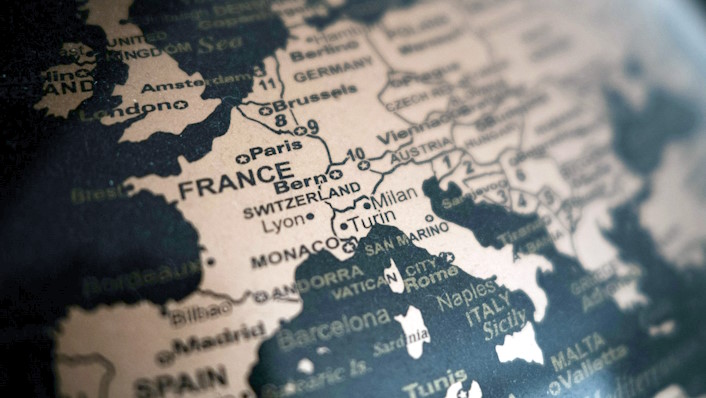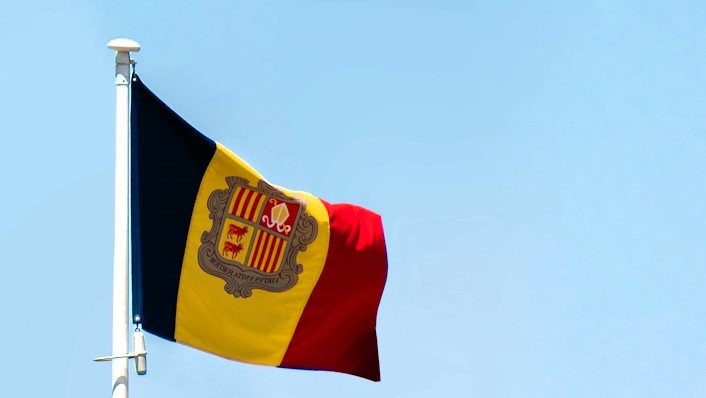How You Can Get Paid €5,000 to Move to Portugal
Escape to Southern Europe’s scenic countryside and get paid for it. Here’s how.

Ever thought of moving to Southern Europe where the sun shines most of the year? Dreamed of exploring its beautiful rural regions and enjoying a different pace of life — and get paid to do it? It may sound too good to be true, but it’s a reality for those willing to relocate to Portugal’s interior.
Many have already heard of the towns and municipalities in Italy that are paying people to move there. But Portugal has launched its own relocation programme called Emprego Interior Mais with cash incentives to encourage people to live and work in its inland regions to revitalise its shrinking rural towns.
It’s not free money, however. To get the funds, you have to take up local employment, become self-employed or start your own business. You’ll need to relocate and establish residency in the new place within the first 180 days of starting your job. Applications must be submitted within 90 days of the date you sign an employment contract or start working for yourself.
Get paid to move to Portugal
There’s good news for foreigners and remote workers — they’re invited to apply for the grants as well, regardless of whether they’re relocating from the Portuguese coast or are coming directly from abroad. In a press release, the Ministry of Labour, Solidarity and Social Security stated, “In the case of citizens residing in foreign countries, the change can now be made directly from abroad to these territories.”
Digital nomads who want to move to an inland region to work remotely will also be able to receive support under the Emprego Interior Mais scheme. The Secretary of State for Labour has said in a recent statement that “the regime now covers workers in remote activity, regardless of whether the employer is a Portuguese company or not.” What this essentially allows you to do is to come to Portugal on the newly released digital nomad visa, or any other type of eligible visa, and be paid to set up your life in one of Portugal’s inland regions.

What is the Emprego Interior Mais?
The Emprego Interior Mais (Inland Employment Plus) is a grant scheme launched by the Portuguese government in 2020 as part of the “Working in the Interior” initiative to support workers who want to live in the country’s rural regions. Over the past decades, much of Portugal has moved to the coastal regions, and only 20% of the population now lives in the interior. With this incentive, the aim is to encourage people to repopulate these areas.
The scheme provides financial support of up to €4,827 to cover the cost of relocating and living in the interior territories for at least a year. The programme is open to employed and unemployed people, those looking for a new job, and those who want to create their own job or start a company in the countryside. Foreigners from the European Union, Switzerland and the European Economic Area can apply for the grant, as well as citizens of other countries, such as the U.S. and the U.K, provided they hold a valid residence permit.
Why the grant gets you more than you think
Let’s be honest: the cash incentive won’t get you many square metres in hotspots like Lisbon or Porto, where rents and home prices have skyrocketed — but in the inland regions, this amount is often enough to cover the rent of a small house or medium-sized flat for an entire year. If you’re not keen on renting, there are also plenty of well-maintained houses, small farms and flats for sale for less than €50,000, or even less than that if you have the skills and spirit to fix them up.
Apart from the grant itself, Portugal also offers tax incentives for people who want to move to the country. The country’s Non-Habitual Resident (NHR) scheme, which has been successfully used by thousands of people, offers tax benefits to foreigners for ten years. Under this initiative, new residents are exempt from paying tax on foreign-sourced income, including investment income, and certain professions can benefit from a reduced tax rate on income earned in Portugal. Combine the grant with the NHR benefits, and you have yourself a very interesting package.
What areas of Portugal are included?
How much can I get?
The financial support provided by the Emprego Interior Mais programme is divided into three parts. The first part is a direct financial grant of €2,633 to those who move to the Portuguese countryside. This amount is increased by 20% for each member of the family (up to €1,316). The second part covers the costs of moving, up to a maximum of €878. Finally, the scheme covers the cost of transporting goods, up to an amount of € 878. The amounts are recalculated each year in line with the Social Assistance Index (IAS).
The secret sauce is what’s saved under the NHR scheme’s special rates compared to what ordinary taxpayers pay. It’s estimated that those earning €50,000 gross per year will pay €48,000 less in tax over five years than regular (non-NHR) taxpayers. Non-residents earning €75,000 will save 44% over 10 years. If you have income that’s tax-exempt because it’s considered foreign-sourced, the savings are even greater. As they say, money saved is money earned.

Who can apply for the grant?
These groups of people can apply for this rural living incentive:
- Self-employed individuals with business or professional income
- Small business owners who create their own job by starting their own limited liability company or another type of legal entity
- Workers who have already set up their own business or company and transferred their activity and residence to the interior of the country
- Unemployed or employed people who are looking for a new job and are registered with the IEFP (the Portuguese public employment service) or employment services of the autonomous regions (Madeira and the Azores).
- Those without Social Security registration as self-employed or salaried workers in the month before applying for the program, signing the employment contract or creating their own job or company.
- Portuguese citizens who left Portugal after December 31, 2015, and have resided outside the country for at least one year.
- Citizens of countries in the European Union, Switzerland, and the European Economic Area
- Third-country nationals (those from outside the EEA and Switzerland) who have a valid residence permit in Portugal with work authorization or are self-employed.
How to get paid to move to Portugal
To apply for Portugal’s Emprego Interior Mais grant and access the application form, you must be residing in costal Portugal or abroad and be registered as a user on the iefponline portal. The application process is conducted entirely online, and you can send your application using the iefponline portal, the website of Portugal’s public employment agency (IEFP):
- Go to the programme’s page on the website of the IEFP.
- Review the legal requirements and the FAQs provided on the website.
- On the right-hand sidebar under "Documentação relacionada," click on "Guia de apoio" to download the PDF guide. This guide outlines all the necessary steps for the application process.
- As per the guide, create a profile on the iefponline portal.
- Once you have registered, you will be able to access the application form. Follow the steps provided in the guide to fill out the form accurately.
- In the second last step, you will need to upload the required documentation (see below what these are).
- Before submission, you must confirm that you have read and agree with the information provided in the application form.
- After completing all the mandatory information, click on the “Submeter” button. A confirmation message will be displayed if there are no errors.
What documents do I need to submit?
- A copy of your work contract, scholarship contract, or proof that you started your own business, if you have already done that or if you have moved your workplace to the interior territory.
- A copy of the changes made to your work contract, a telework agreement, or proof from your employer that you moved your workplace if you’re an employee.
- If you’re a foreign worker or self-employed and you can’t provide the documents mentioned above, you need to provide a statement from the entity that proves you started your activity from January 1, 2022, and you work in the interior territory.
- Proof that you changed your address or your commercial registration certificate if you created your own business or work independently.
- A document that proves you changed your residence.
- A statement that proves you don’t owe any money to Social Security or the Tax Authority (or that you allow the Tax and Customs Authority and Social Security to check your records).
- A document that proves how many members there are in your household if you have mentioned this on your application form.
- Proofs of expenses related to transportation of goods, if you have indicated that the change of residence entailed costs and these have already occurred.
FAQs
When is the grant paid out?
The grant is paid out in two instalments: The first 60% is paid out 10 working days after you provide the necessary documents and accept the Approval Decision. The remaining 40% is approved in the thirteenth month after starting your new employment contract or company.
When do I receive a response after submitting the application?
The IEFP informs you of the application decision within 20 working days after the submission of the application. This deadline is suspended if additional documents are requested by the IEFP, provided that they prove to be decisive for the decision. After the application is approved, the recipient has 10 working days to return the Approval Decision Acceptance Term.
Sources
- Instituto do Emprego e Formação Profissional. “Emprego Interior MAIS - Mobilidade Apoiada para Um Interior Sustentável.” Accessed May 5, 2023.
- Diário da República, 1.ª série. PRESIDÊNCIA DO CONSELHO DE MINISTROS. "Resolução do Conselho de Ministros n.º 16/2020." N.º 62, 27 de março de 2020, p. 9.



